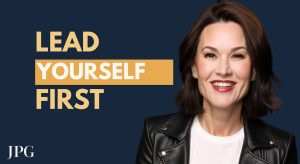Your personal brand is more important than ever. Many professionals excel at their jobs, showing up and performing day in and out. However, they often overlook the long-term benefits of cultivating a strong personal brand.
How can you be seen as a thought leader? How will you be asked to speak at conferences or in the media? How can you network outside of your current job environment? What opportunities will appear for you later in life if you actively manage your online presence now?
During a recent webinar hosted by Traci Kantowski of Women In Nutraceuticals (WIN), I shared some key insights on building a personal brand.
The Importance of Personal Branding
Many professionals neglect their personal brand, thinking they don’t need one or have one. The truth is everyone has a personal brand. It’s about owning and aligning with it to establish credibility, build trust, and create a unique professional identity.
A strong personal brand can significantly influence your career growth, networking opportunities, and industry influence. It helps you stand out in a crowded marketplace and positions you as a thought leader in your field.
How to Leverage Your Personal Brand
1. Google Yourself
The first step in leveraging your personal brand is to Google yourself. This may sound simple, but it’s a crucial exercise. Here’s how to make the most of this step:
- Audit Your Online Presence: Look at all the information that comes up about you. This includes social media profiles, articles, photos, and any mentions of your name. Ensure that everything aligns with who you are now. Are there outdated job titles or old photos that don’t represent your current professional image? Update them.
- Consistency Across Platforms: Make sure that your LinkedIn, Facebook, Twitter, Instagram, and any other professional profiles are consistent. Your professional image should be cohesive across all platforms. This also includes having a personal website that acts as a hub for your professional brand. It should showcase your resume, portfolio, and a professional blog.
- Remove Irrelevant Content: If there are old profiles or content that no longer align with your current professional identity, it’s time to either update or remove them. You don’t want potential clients or employers to find irrelevant or outdated information. This clean-up ensures that what they do find is relevant, up-to-date, and reflective of your current expertise and personality.
2. Showcase Your Unique Strengths
While many people may have similar degrees and qualifications, what sets you apart is your personality and unique selling points. Here’s how you can effectively showcase your strengths:
- Identify Your Unique Qualities: Think about what makes you different from others in your field. Is it a specific skill, a unique approach, or a personal experience that gives you a unique perspective? Reflect on your strengths and how they contribute to your professional success.
- Incorporate Your Strengths Into Your Personal Story: Your personal brand should tell a story about who you are and what you bring to the table. Use your unique strengths as the cornerstone of this story. This will not only make you stand out but also make your personal brand more relatable and memorable.
- Highlight Your Accomplishments: Don’t be shy about showcasing your achievements. Whether it’s a successful project, a notable award, or a skill you’ve mastered, make sure these are highlighted in your personal brand. Use them to demonstrate your expertise and the value you bring.
- Engage With Your Audience: Connect with your audience on a personal level. Share your journey, the challenges you’ve overcome, and the lessons you’ve learned. This transparency helps build trust and establishes you as a thought leader in your field.
3. Set SMART Goals
Creating content and maintaining a strong online presence is time-consuming, so it’s essential to set SMART goals for your personal brand. Here’s how to do it effectively:
- Specific: Clearly define what you want to achieve with your personal brand. Whether it’s attracting more clients, getting contacted by journalists for media interviews, or becoming a thought leader in your field, be specific about your goals.
- Measurable: Set benchmarks to measure your progress. For example, aim to increase your LinkedIn connections by a certain percentage or set a target number of blog posts or articles to publish each month.
- Achievable: Set realistic goals that you can achieve within a certain timeframe. Don’t overwhelm yourself with too many objectives. Focus on a few key areas that will have the most impact on your personal brand.
- Relevant: Ensure your goals are relevant to your overall career aspirations and personal brand. If your aim is to be seen as a thought leader in healthcare, for example, focus on creating content and engaging with communities in that field.
- Time-bound: Give yourself deadlines to achieve your goals. This will keep you motivated and ensure that you make steady progress. For instance, set a goal to revamp your LinkedIn profile within the next month or to start a blog within the next quarter.
Personal branding is not just about self-promotion; it’s about establishing credibility, building trust, and creating a unique professional identity. By leveraging your personal brand, you can influence career growth, expand your network, and become a thought leader in your industry. Start by Googling yourself, showcasing your unique strengths, and setting SMART goals for your personal brand.
Need help with your personal identity? Let’s talk about how Janicek Performance Group will transform your personal brand into a powerful professional asset.





